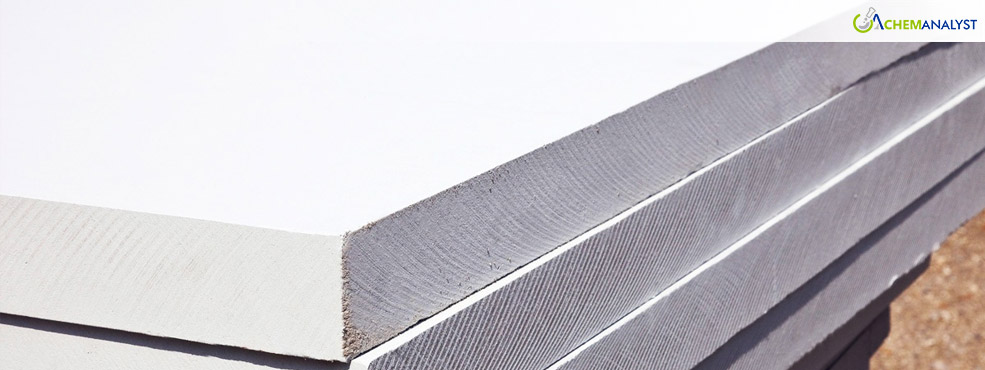Welcome To ChemAnalyst

In January 2025, the Calcium Silicate market in Asia experienced a notable upswing, largely driven by firm demand from the construction sector. China emerged as a key player, with its market dynamics significantly influencing the regional trend. The Spring Festival played a pivotal role in enhancing economic activity during this period, leading to improved business indicators. As a result, procurement activities among major downstream industries accelerated, and Calcium Silicate FOB Qingdao prices saw an increase of 1.5%.
Key Takeaways:
In January 2025, the Calcium Silicate market in Asia experienced a notable upswing, largely driven by firm demand from the construction sector. China emerged as a key player, with its market dynamics significantly influencing the regional trend. The Spring Festival played a pivotal role in enhancing economic activity during this period, leading to improved business indicators. As a result, procurement activities among major downstream industries accelerated, and Calcium Silicate FOB Qingdao prices saw an increase of 1.5%.
According to data from the National Bureau of Statistics, China’s non-manufacturing business activity index for January reached 50.7%, indicating overall expansion. However, the construction industry’s index fell to 53.9%, a decline of 3.0 percentage points from the previous month. This dip in the construction index appears to be a temporary setback, nevertheless, overall demand for Calcium Silicate remained firm.
ChemAnalyst anticipates that post-holiday procurement in February will strengthen demand further. As companies resume projects, especially in infrastructure and insulation applications, Calcium Silicate prices are likely to see an additional boost.
In Europe, a similar trend emerged as German CFR Hamburg prices for Calcium Silicate rose by 1% in January. This increase was primarily driven by higher import costs and a gradual stabilization in the Eurozone construction sector, which had been experiencing prolonged contraction.
The revival in construction activity has spurred renewed demand for Calcium Silicate. This material is now increasingly used in cement and concrete production, building insulation, and fire protection systems. Its robust strength, energy efficiency, and fire-resistant properties make it essential for construction, driving higher demand as infrastructure projects and renovation efforts gain momentum across the region.
Despite the challenges in some European economies, Italy showed modest growth during this period. This small but positive change is seen as an early indicator of regional recovery. In contrast, Germany and France continue to face economic headwinds, yet efforts to revive their construction sectors are gradually taking effect.
Germany’s construction sector, while still affected by inflationary pressures and lower contractor confidence, is witnessing a resurgence in urban housing demand and renovation projects. This recovery is contributing to the increased use of Calcium Silicate in building applications.
The European Union’s strong push for energy-efficient infrastructure, supported by Recovery Funds, has further boosted demand for Calcium Silicate. The material is becoming an essential component for sustainable construction and insulation solutions, reflecting broader environmental goals across the region. Additionally, supply constraints caused by production bottlenecks have added upward pressure on prices. With these challenges, market participants are anticipating continued price increases.
Our analysts predict that Calcium Silicate prices in Europe is expected to rise in February. Factors such as the stabilization of construction permits, increased renovation activity, and higher import costs are expected to maintain the upward trend.
We use cookies to deliver the best possible experience on our website. To learn more, visit our Privacy Policy. By continuing to use this site or by closing this box, you consent to our use of cookies. More info.
